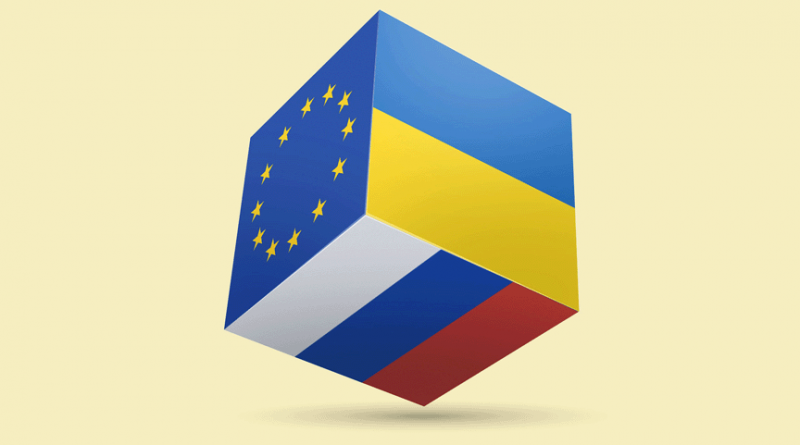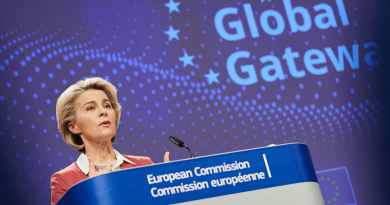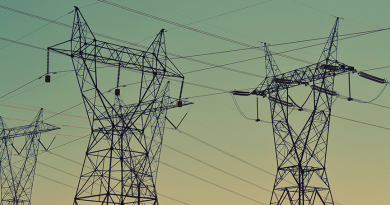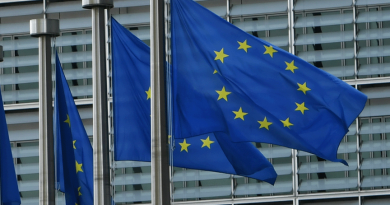Pulling the curtain on Russian myth making
Nikolai Levin is a Researcher at Alliance4Europe
In Europe the fascination with Russia, its art, history, and literature runs deep. Russia sparks our imagination, calling to the mind images of the infinite Siberian steppes, golden domes, omnipotent tsars, and dystopian dreams.
Ever since the Russo-European relationship has started to go off-track (notably since the invasion of Crimea in 2014), Russia has been impressively capable of capitalizing on this fascination via the use of a well-functioning propaganda machine, maybe the most capable industry of the whole state, as well as less elegant methods, of course.
The lengths to which the authors of Russian influence campaigns were willing to go could be witnessed in the wake of the collapse of Austrian Chancellor Sebastian Kurz’s government in 2019 or the odd Moscow encounters between Russian officials and Italian politicians from Lega.
This combination of factors allowed the Russian president to carve himself into the pantheon of European nationalists as an archetypical incarnation of a sovereign, traditionalist leader free of the pesky counterweights of liberal democracies. Furthermore, he became a point of reference for those who dislike the United States enough to be forgiving towards Russia.
This cloak of idealization and myth that Russia is wearing abroad can be seen almost entirely in the video from the Spanish Russian embassy: Time to move to Russia; a country with an unshakable economy, traditional values, vodka, and without the hypocrisy of the politically correct. A vision in contrast with my experience and the stories of relatives and friends that have lived, in one way or another, in contact with Russian reality.
As for the unshakable economy, Russia has indeed been able to withstand sanctions better than forecast. Before calculating the impact of the sanctions, however, it is worth understanding Russia’s economy in the first place.
Unsurprisingly, economic realities in many ways run counter to the picture Russia wishes to project abroad. Russia’s GDP is close to the Italian one (c. 1.8 trillion USD, less than half of the German one) while having more than twice the population.
This author only understood what this meant when living in the countryside near Moscow: if there was a need for water, you had to go to the well, if there was a need for a toilet, you had to go outside, in a closet with a hole dug in the ground. When you realize that thirty million people – according to Novaya Gazeta – more than one-fifth of the population live in these conditions, it is possible to start understanding Russia.
It is a land spanning nine time zones where not just various cultures, but different epochs live together. Only with this in mind do the otherwise ridiculous stories of Russian soldiers discovering flush toilets in Ukraine start to make sense.
Looking beyond the opulent cities of Moscow and Saint Petersburg we see villages whose economy can only be described as medieval and whose power structure is essentially feudal. The only thing sewing the country together is the obligatory portrait of the president hanging behind the provincial official’s desk and his never-ceasing omnipresence on state television.
Russia has long tried to hide this side of itself internationally. It has been helped in this mission by Western reporters focused on Moscow’s powerful means of international force projection. But more so, the story machine on Russian greatness is homemade.
Russia Today, which had established itself as a source for alternative facts and carefully crafted fake reality on both the extreme left and the nativist right before it was banned in the wake of Russia’s attack on Ukraine, had raked up more than ten billion views: the most followed news channel in the world. And this was just the most overt element of the Russian influence machine.
A moment of closer attention would quickly dispel the idea that Russia could be some kind of role model for the disengaged and sceptical portions of the European electorate. Nevertheless, its president still serves as a source of inspiration for too many European politicians, and to a certain degree, there is a logic to this fact.
Despite the ongoing war his approval rating, according to official polling, is solidly above 70%, numbers a liberal democrat would not dare dream of and elicits in some the desire for harmony and consensus-based decision making, where the political process of the people is freed from the constant conflict and bickering so present on Western news cycles. Even if the consensus is enforced and the bickering has given way to a silence that is less an expression of consent but rather of fear.
In essence, Russia is a state that embodies Europe’s dreams, yet realized none of them
At the same time, we would do well to not elevate the president too much. When Westerners react with horror at the ban on ‘LGBT propaganda’ in Russia, they are reacting to an illiberal degeneration of the whole country more than an autocratic overreach. Russians are deeply homophobic, and the new laws are read better as a dictatorship of the majority, that that of a single man.
While this form of dictatorship is alive and well in Russia today, the other kind has started to show cracks. We can see this clearly in the aftermath of ‘partial mobilization’. Since its announcement, the number of mobilized Russians was dwarfed by more than twice as many emigrated ones, ‘how to break an arm’ became the top Google search, and many hid away the best they could.
Among them was an acquaintance of mine, who sought cover in an abandoned house in the woods out of Moscow, and went through the lengths of living for a month without electricity or running water to avoid the draft.
Even if this example were not to discourage the most extreme populist, it should still warn against blindly following the will of the people, or in Russia’s case, the majority’s silent approval.
It comes at the expense of those young men who did not escape the mobilization and are now fighting and dying to keep alive the brutal whims of a tyrannical majority and the very narrow economic interests of a corrupt elite.
Where Russia departs, at least in theory, from the illiberal democracies aspiring to its international clout, is the verticality of its power structure. Citizens are coerced to think by force, quite directly, and the force of television. The vertical means, people don’t need a voice – they are reduced to mere echoes of predetermined politics, and every wheel in the machine works to ensure that it stays this way.
For a university student, the price of dissent is expulsion from university, for a friend of mine who is still in high school, the price was to never enter it, prevented by a threat made to her mother by policemen and the school director.
It is a thin layer indeed of performative democracy and rhetoric that covers a political system with naked power and contempt at its heart.
In essence, Russia is a state that embodies Europe’s dreams, yet realized none of them. It is an invincible economy without hot water in hospitals, an illiberal democracy where the people listen to the elites, a state where no one gets ‘cancelled’ because no one can speak.
When in the XVIIIth century Denis Diderot defined Russia as a giant with feet of clay, he was referring to the biblical story in which Nebuchadnezzar dreamed of a giant made of precious metals. It had a golden head, large silvery shoulders, a bronze stomach, and iron legs, only its feet were made of clay. According to Diderot, the Russia of empress Catherina II rested on fragile foundations. Since then, many things have changed, but most did not. Defending democracy these days also means stripping Russia of its masks and glittery self-presentation. Only by looking beyond the propaganda and the fearful aggression of its army alike, into the mud and clay of Russian reality, one can know how utterly undeserving the country remains of both fear and admiration.




